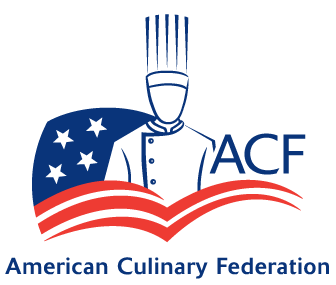Accreditation and Licensure
On February 1, 2018 Florida Technical College became an academic unit of NUC University (NUC). As an accredited school, Florida Technical College has educated students for 35 years. However, with the transition to becoming an academic unit of NUC, we believe we are an educational institution with an even brighter future that will allow us to serve your educational needs even better than before!
NUC University (NUC) is accredited by the Middle States Commission on Higher Education (MSCHE)*. We believe the MSCHE accreditation process will further enhance FTC’s programs through self-evaluation and improve our students’ opportunities in the future.
Florida Technical College is licensed by the Commission for Independent Education, Florida Department of Education (CIE).
Additional information regarding this institution may be obtained by contacting the Commission at: 325 West Gaines Street Suite 1414 Tallahassee, FL 32399-0400 Toll-free: (888) 224-6684 Florida Technical College is a member of the Florida Association of Postsecondary Schools and Colleges.
For more information, please visit our Catalog – Accreditation and Licensure.
The Baking and Pastelería and Culinary Arts Diploma programs at the Kissimmee campus are programmatically accredited by the Accrediting Commission of the American Culinary Federation Education Foundation (ACFEF).
- 180 Center Place Way. St. Augustine, Florida 32095
- Tel: (800) 624-9458
- Fax: (904) 825-4758
- E-mail: acf@acfchefs.net
NUC University is an institution authorized by the Board of Postsecondary Institutions (JIP) through the institutional license 2021-166. NUC University (NUC) is an accredited institution and a member of the Middle States Commission on Higher Education (MSCHE) www.msche.org. NUC’s NUC University – IBC Technical Division (NUC-IBC), NUC University – Florida Technical College (NUC-FTC), and The Digital Animation & Visual Effects School (The DAVE School) are included in this accreditation. NUC’s accreditation status is Accreditation Reaffirmed. The Commission’s most recent action on the institution’s accreditation status on 2019 was to reaffirm accreditation. MSCHE is an institutional accrediting agency recognized by the U.S. Secretary of Education and the Council for Higher Education Accreditation (CHEA).
FTC recently reorganized its operational structure to increase its resources and academic offerings. It merged as an academic unit with NUC University (NUC), which until recently had been a sister institution. NUC also took under its tutelage The Digital Animation & Visual Effects (DAVE) School.
Middle States Commission on Higher Education (MSCHE)
What does the FTC organizational change consist of?
FTC recently reorganized its operational structure to increase its resources and academic offerings. It merged as an academic unit with NUC University (NUC), which until recently had been a sister institution. NUC also took under its tutelage The Digital Animation & Visual Effects (DAVE) School which was a division of FTC.
What does this change represent for me as a student?
This change adds value and opportunities to your career. The fusion of our institutions will expand our academic offerings and provides a great variety of programs to choose from as you continue your studies. Likewise, we believe it will strengthen the education you receive as a NUC University student based on Middle States Commission on Higher Education’s (MSCHE).
Who is MSCHE?
The Middle States Commission on Higher Education is an accrediting agency recognized by the U.S. Secretary of Education and the Council on Higher Education Accreditation (CHEA). It conducts accreditation activities for degree-granting nonprofit, public and for-profit higher education institutions in a defined geographic area, including institutions in that geographic area offering distance education. Its accreditation focuses on the educational excellence of the institution as a whole.
See www.msche.org (opens in new window) for more information on MSCHE.
Does this imply a change in the location of my institution?
No. You will continue studying at the campus where you enrolled and receive the same excellent service you have enjoyed thus far.
How does MSCHE accreditation benefit me as a student?
MSCHE accreditation provides students with:
- Assurance that the institution in which you are enrolled meets the rigorous and comprehensive standards of MSCHE.
- Potentially greater opportunities for transfer and validation of credits at other institutions in Puerto Rico and the United States.
Will the program in which I am enrolled experience any changes?
No. Your program will remain the same. Our programs are submitted to regular revisions that allow us to ensure the curriculum is up-to-date and complies with quality, accreditation, and employability standards.
Can I use facilities and services at NUC or other NUC Institutions?
Yes. As long as you use your student ID, you will have access to libraries, study rooms, and other student areas at our institutions.
Will I have the same professors?
Yes. We will continue to have our fully committed and trained faculty that teaches courses according to the curriculum.
Will I have to resubmit admission or financial aid documents after this change?
No. You are still an active student. Therefore, your enrollment and financial aid documents are already in your file.
Will I lose credits for classes I already took?
No. Your credits are still valid.
Will I lose my student aid or student loan?
No. You will keep your financial aid benefits.
Will the cost per credit or program increase?
The cost of programs at a diploma level will remain the same. The costs of associate, bachelor´s and master´s degrees will be adjusted to the cost per credit at NUC starting March 2018.
Will I still be able to use the transportation service currently provided by the institution?
Yes. You will still be able to use the transportation service.
Will I have to take the College Board?
You will only have to take the College Board if you transfer to an academic program that requires it.
Can I use the same uniform?
Yes. You can still use the same uniform. You will be notified if there are any changes.
What will happen with my externship?
The externship will continue according to your program with no changes.
(Graduates) Will my diploma no longer be valid due to the institution’s name change?
Your diploma remains valid. The institution has been licensed to operate in the state of Florida and accredited by an institutional accrediting agency.
Florida Technical College is an academic unit of NUC University, which is accredited by the Middle States Commission on Higher Education.*
NUC University is an institution authorized by the Board of Postsecondary Institutions (JIP) through the institutional license 2021-166.
NUC University (NUC) is an accredited institution and a member of the Middle States Commission on Higher Education (MSCHE) www.msche.org. NUC’s NUC University – IBC Technical Division (NUC-IBC), NUC University – Florida Technical College (NUC-FTC), and The Digital Animation & Visual Effects School (The DAVE School) are included in this accreditation. NUC’s accreditation status is Accreditation Reaffirmed. The Commission’s most recent action on the institution’s accreditation status on 2019 was to reaffirm accreditation. MSCHE is an institutional accrediting agency recognized by the U.S. Secretary of Education and the Council for Higher Education Accreditation (CHEA).
The Digital Animation & Visual Effects (DAVE) School, Florida Technical College, and NUC University – Miami Campus are licensed by the Commission for Independent Education, Florida Department of Education, License Numbers 2319, 2342, 2343, 2344, 2715, 4526, 4639, 5295, and 5635. Additional information regarding this institution may be obtained by contacting the Commission at 325 West Gaines Street, Suite 1414, Tallahassee, FL 32399-0400, toll-free telephone number (888) 224-6684.
The Commission for Independent Education has statutory responsibilities in matters relating to nonpublic, postsecondary, educational institutions. In keeping with the Florida Department of Education’s goal of producing a seamless educational system, some of these functions include consumer protection, program improvement, institutional policies and administration, data management, and the licensure of independent schools, colleges, and universities.
NOTICE: Credits and degrees earned from colleges which are licensed in the State of Florida do not necessarily qualify the holder to participate in professional licensing examinations in Florida. Any person interested in practicing a regulated profession in Florida should contact the appropriate State regulatory agency in the field of his or her interest.



